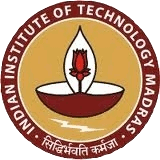Team:IIT Madras/Overview
From 2013.igem.org
(Difference between revisions)
JunaidBabu (Talk | contribs) (Created page with "{{:Team:IIT Madras/Templates/Header}}<html> <div class="container"> <hr class="featurette-divider"> <h2 align="center"> Overview </h2>...") |
JunaidBabu (Talk | contribs) |
||
| Line 24: | Line 24: | ||
| - | |||
| - | |||
| - | |||
| - | |||
| - | |||
| - | |||
| - | |||
| - | |||
| - | |||
| - | |||
| - | |||
| - | |||
| - | |||
| - | |||
| - | |||
| - | |||
| - | |||
| - | |||
</html> | </html> | ||
Revision as of 17:41, 26 September 2013
Overview
Shiga toxin, a worldwide menace, has killed more than 1 million people to date and continues to afflict over 150 million people each year. Currently, there is no treatment for Shiga toxicosis and it leads to many complications in the human system like hemolytic uremic syndrome (HUS) and renal failure. Here, we propose a two-fold, novel synthetic biology approach to combat the lethal effect of the toxin. We aim to neutralize the already produced toxin through a nine-amino acid Gb3 mimic peptide. We have already engineered the Gb3 mimic along with a cellular export signal (ompF) downstream of an N-Acyl Homoserine Lactone (a quorum sensing molecule) inducible promoter (pLuxR). We also plan to prevent further toxin production by inhibiting the biofilm formation of shigatoxigenic E.coli using indole-3-acetaldehyde (I3A). A polycistronic construct effecting I3A production is to be cloned downstream of the AHL-inducible promoter and detection of I3A is to be performed using mass spectrometry. We expect to validate our approach through functional assays and in silico modelling. Our findings can potentially initiate a new perspective of tackling Shiga toxicosis using synthetic biology tools
 "
"


